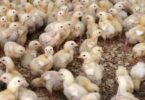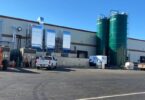Editor’s note: This story is part of a series on the trends that will shape the food and beverage industry in 2022.
Beef is not sustainable: That’s what critics charge and what many consumers want to see change.
The statistics around the meat’s environmental footprint are attention-grabbing. Globally, livestock contributes 14.5% of manmade greenhouse gas emissions, with beef responsible for the largest share, according to the Food and Agriculture Organization of United Nations. The livestock industry was responsible for the second-largest share of emissions of methane — a powerful greenhouse gas said to be 25 times more potent than carbon dioxide — in the U.S. in 2019, according to the EPA. Global methane emissions from cattle, meanwhile, have risen by more than 10% since 2000, according to Statista data.
“We all worry about what this future looks like, and we all feel extreme pressure to mitigate these impacts in a very real way,” said Kim Stackhouse-Lawson, professor of animal science at Colorado State University and a researcher of sustainable cattle herding methods.
While demand for beef remains high, with sales last June rising 12% above the 20-year average, according to Gro Intelligence, consumer attitudes may be shifting against the protein over the longer term because of its large environmental footprint. Studies have shown growing interest among U.S. consumers in limiting meat intake based on the industry’s impact on climate. According to a 2020 Gallup poll, 49% of people who were reducing their consumption of meat cited environmental reasons as a major factor. Meanwhile, the rising popularity of plant-based alternatives, whose production is said to emit anywhere from 30% to 90% less greenhouse gases than animal-based meat, has also added pressure for the beef industry to address the sustainability of its protein.
In response, beef providers have recently begun to set goals to reduce emissions by tapping approaches like regenerative farming and methane-cutting feed. And in the year ahead, these efforts and a search for other solutions are only expected to ramp up as the industry seeks to win over skeptical consumers and governments grappling with climate change. At the same time, some critics argue that meat producers are ignoring some compelling — if costly — options for addressing the problem, demonstrating the complexity of making beef truly sustainable.
Industry efforts target emissions
As a first step, many of the largest beef processors have set goals to cut their emissions, with each relying on a mix of measures to hit its target.
Last year, Brazilian beef giant JBS committed to achieving net-zero emissions by 2040 across its global supply chain. To do so, it is investing $1 billion on projects targeting greenhouse gases, including $100 million by 2030 to help its producers implement regenerative farming practices. It also has vowed to eliminate illegal deforestation from its supply chain by 2025. This is after The Guardian published a 2020 report that JBS was being supplied by a cattle farm linked to illegal deforestation in the Amazon.
Cargill aims to cut beef emissions across its North American supply chain by 30% by 2030, through practices like regenerative farming. And in 2021, Tyson announced it was targeting net zero emissions across its global operations and supply chain by 2050, in part by eliminating deforestation and sourcing beef from producers verified by BeefCare, a program that audits farms and ranchers to ensure they are following sustainable practices.
As major beef processors set their individual targets, the industry is also trying to collaborate with other stakeholders on the the issue. The Global Roundtable for Sustainable Beef has a membership portfolio that includes not only big beef producers, processors and their suppliers but also retailers, environmental groups and academic institutions.
Ruaraidh Petre, executive director of GRSB, said that the entity was formed around goals that industry leaders thought were critical to stop temperatures from rising, providing specific principles for different areas of the globe that produce beef based on their climate. He said that the organization finds common ground in wanting to prevent climate catastrophe, both personally and for the beef industry’s sake.
“We won’t be able to be in business if we don’t stop climate change,” Petre said. “Nobody will be in business.”
Petre said one area the industry is focused on is feed additives, which have the potential to prevent methane production in the cow. In November, JBS SA announced it was partnering with ingredients giant Royal DSM to use its new feed additive, Bovaer, which is said to suppress the enzyme that produces methane in beef cows and reduce emissions by up to 90%.
“We won’t be able to be in business if we don’t stop climate change. Nobody will be in business.”
Ruaraidh Petre
Executive director, The Global Roundtable for Sustainable Beef
Hugh Welsh, president of DSM North America, said the company is currently working with JBS to see how the additive can best be implemented in its supply chain, but did not indicate how long this process could take. However, he noted that the FDA has not approved Bovaer for use as a feed because it determined that the additive does not offer nutritional benefits to the animal. Instead, the agency has classified it as a drug, which means it will likely go through a potentially longer approval process.
“There’s no regulatory pathway for a feed ingredient with an environmental benefit,” Welsh said, adding that the company is currently trying to figure out if the feed provides a nutritional benefit to cattle. “It might improve the energy efficiency of the animal,” he said.
Petre with GRSB also pointed to genetic research being conducted to identify which cows have a lower residual feed intake, which could lower emissions. In July, Cargill announced it was participating in the Dairy Beef Accelerator, a three-year program that will examine the benefits of crossbreeding beef and dairy cows to create hybrids that have improved feed efficiency.
“There’s a lot of promise, but those things are really just coming to the stage of commercialization now,” Petre said.

Optional Caption
Nikola Stojadinovic via Getty Images
Regenerative agriculture rises
As these longer-term efforts roll out, one common approach that many big beef processors and producers have embraced to address emissions is regenerative agriculture. Broadly speaking, these are farming practices that restore the soil and water used for food production by sequestering a critical mass of carbon dioxide from the atmosphere, according to nonprofit Regeneration International. They include the use of cover crops, for example, that prevent the release of carbon from land that is being used to raise beef cattle or grow ingredients for feed.
In September, Cargill announced it would pay farmers to expand or implement regenerative agriculture practices. The beef giant said it will involve sustainable grazing practices to “harness the potential of cattle,” and restore soil to remove carbon from the atmosphere.
The adoption of regenerative agriculture by meat companies has happened very rapidly, according to Petre with GRSB. While there is research pointing to the positive benefits of sequestering carbon, he said they are not fully known because “regenerative” practices are defined differently by various companies.
“It’s kind of being used as a panacea in a way,” Petre said. “Regenerative [agriculture] has become really popular, almost before we have the evidence to say, ‘These are the things to concentrate on.’ ”
In its 2021 investigation into the meat industry’s sustainability claims, environmental group DeSmog argued that regenerative practices are not guaranteed to neutralize beef’s climate impacts, and cited a New York University study that found limited evidence that the practice can effectively sequester more carbon than the industry produces.
“It’s kind of being used as a panacea in a way. Regenerative [agriculture] has become really popular, almost before we have the evidence to say, ‘These are the things to concentrate on.’”

Ruaraidh Petre
Executive director, The Global Roundtable for Sustainable Beef
However, some small beef producers see regenerative farming as a key part of the solution to raising the sustainability profile of the meat.
The owners of Stemple Creek Ranch, a grassfed beef company based in Northern California, are used to dealing with a difficult growing climate because of the trend of yearly droughts in their home state. Lisa Poncia, who runs Stemple Creek with her husband Loren Poncia, said the company has prioritized sustainability since its founding in the 1970s, embracing practices like rotational grazing, which confines cows in one section of a pasture to let the plants in other parts recover.
The company, which sells whole-cut steak, hot dogs, jerky and ground beef on its website, believes in the potential of regenerative agriculture, Poncia said. She noted that the improved soil that results from these practices supports more biodiversity and allows more moisture to be extracted by plants, which are eaten by cows, for greater growth.
“The more carbon we have in our soil, the more water it absorbs,” she said.
New Zealand-based Silver Fern Farms has embraced some regenerative agriculture practices for its own grassfed beef. It sees the approach as a comprehensive effort that involves the entire process of growing beef, including lowering its overall carbon content, maintaining water quality, as well as the social impact of beef production, according to Matt Luxton, director of U.S. sales.
In July, the company announced it would launch its Net Carbon Zero Certified Beef in the U.S. The company told Food Dive its retail launch is « imminent, » but that there is not yet a release date. To earn certification, Silver Fern Farms had to track the lifecycle of its products from the cow’s birth to its processing phase to the consumer. It arranged carbon offsets to negate the emissions produced in the process.
“So all of those things had to be investigated, and that was a long, arduous journey, making sure that we had all those numbers right,” Luxton said. The product will be available in whole cuts to U.S. consumers through the company’s website, as well as various grocers, he said.
He noted that ultimately, Silver Fern is working to sequester more carbon than it produces overall. It wants its practices to serve as a wider example for the beef industry.
“If we’re coming to market with this carbon-zero beef and there’s 20 others within two months, that’s a good thing,” Luxton said.

Optional Caption
Jenny Evans via Getty Images
Are certain measures just greenwashing?
Despite the goals set and approaches that beef producers have taken to address the sustainability of the meat, critics have called many of these efforts greenwashing. They fear that producers are simply announcing sustainability efforts but have no plans to follow through on them, or that they will not in fact lower emissions.
Poncia with Stemple Creek acknowledged that there is greenwashing in the industry from both big and small players. However, she said that her company is focused on prioritizing sustainability as it expands in the years ahead.
“This is not just puffery,” Poncia said. “This is truly who we are as individuals and as a business.”
Companies may not “intentionally” be greenwashing, but sustainability goals must provide a roadmap for farmers to actually implement their practices more widely, according to Stackhouse-Lawson, who also serves as the director of AgNext, Colorado State University’s agricultural research center. These roadmaps could differ, she added, based on locale and at different points in the supply chain.
Perhaps more fundamentally, Stackhouse-Lawson said the total level of emissions resulting from beef is not even currently known because it is very expensive to measure, and it is not yet technically feasible to measure emissions from a large number of animals.
“Unfortunately we actually don’t even really have a baseline of greenhouse gas emissions from livestock in this country,” Stackhouse-Lawson said. “That is some of the research we would love to do and we have continued to pitch that.” Sustainability investor group FAIRR has found that globally, only 18% of meat and dairy companies track even partial methane emissions.
This begs the question: if the majority of beef providers are not tracking their total emissions, how can they properly achieve their goals?
“Unfortunately we actually don’t even really have a baseline of greenhouse gas emissions from livestock in this country. That is some of the research we would love to do and we have continued to pitch that.”

Kim Stackhouse-Lawson
Professor of animal science, Colorado State University
Petre with GRSB said that the commercial beef industry has been investing in reducing its emissions. He cited research showing that industry carbon emissions have been falling in countries like the U.S., Canada and New Zealand for decades. The industry’s overall carbon footprint is rising, Petre said, due to lower-income countries increasing their herd sizes with poor nutrition, along with deforestation, referencing findings from the Intergovernmental Panel on Climate Change.
Meanwhile, advancements like the Bovaer feed additive will take a long time for wider adoption, he said, because the regulatory process is arduous and the financial incentive is not high for farmers.
“Individual ranchers or farmers are the ones to administer such products, but if there is no financial incentive to do so and the products cost money, adoption will clearly be slow.”
One promising approach that AgNext has been studying is precision herding, which trains cows to graze on less land. It involves placing a collar on a cow and tracking its movement. The collar beeps when the animal has moved outside its desired range.
“You could literally run cattle from your desk on your phone and move them appropriately to forage growth,” Stackhouse-Lawson said.
However, Stackhouse-Lawson said that research and execution of precision herding would be expensive, and there is limited funding in terms of private, grant and federal investments.
“We are very behind on solutions to really reduce the overall impact of animal agriculture on greenhouse gas emissions more broadly,” she said. “It just has not been prioritized at all in funding mechanisms.”
Petre said that there is virtual fencing for grasslands being developed by tech companies like Vence and supported by large investors like Rabobank. However, he said, many individual farmers enjoy the ability to check and handle their cattle physically.
“For many, beef production is not primarily an economic driver, so investments in technology are not always top of mind,” Petre said. However, he noted that commercial producers are generally quick to adopt tech that enhances returns and labor such as automatic gates, radio frequency identification tags, and weighing systems.
Stackhouse-Lawson acknowledged that it is a layered issue, as many farmers are struggling financially and may feel burdened by taking on a new method of doing their job. Finding new incentives to promote adoption of sustainable strategies, she said, is a key component of AgNext’s work.
“Generally, our producers are not provided the true tools that they need to really develop an adaptive capacity to move as fast as they’re being expected to move,” she said.








